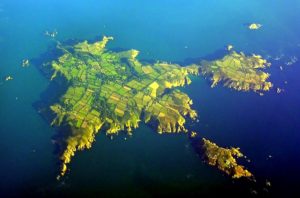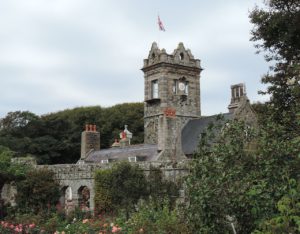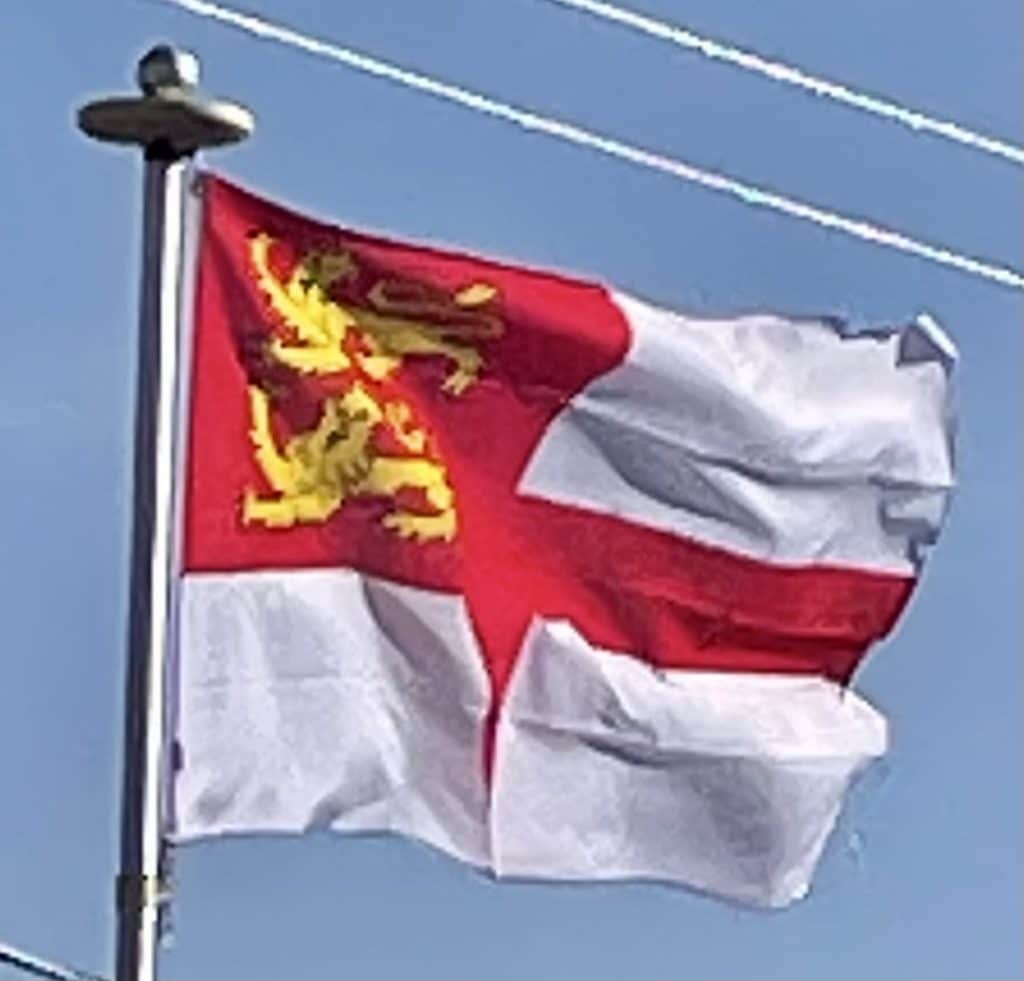During World War II, the island, along with the other Channel Islands, was occupied by German forces between 1940 and 1945. German military rule on Sark began on 4 July 1940, the day after the Guernsey Kommandant Major Albrecht Lanz and his interpreter and chief of staff Major Maas visited the island to inform the Dame and Seigneur (Sibyl and Robert Hathaway) of the new regime. British Commandos raided the island several times. Operation Basalt, during the night of 3–4 October 1942, captured a prisoner, and Hardtack 7 was a failed British landing in December 1943. Sark was finally liberated on 10 May 1945, a full day after Guernsey.

In late August 1990, an unemployed French nuclear physicist named André Gardes, armed with a semi-automatic weapon, attempted an invasion of Sark. The night Gardes arrived, he put up two posters declaring his intention to take over the island the following day at noon. The following day he started a solo foot patrol in front of the manor, in battle-dress, weapon in hand. While Gardes was sitting on a bench waiting for noon to arrive, the island’s volunteer connétable approached the Frenchman and complimented him on the quality of his weapon. Gardes then proceeded to change the gun’s magazine, at which point he was tackled to the ground, arrested, and given a seven-day sentence which he served in Guernsey. Gardes attempted a comeback the following year, but was intercepted in Guernsey.
Transition to new system of government:
Brothers David and Frederick Barclay had purchased an island within Sark’s territorial waters in 1993 along with the hotels on the island. In the mid-1990s, the brothers petitioned the European Court of Human Rights in Strasbourg, France, challenging Sark’s inheritance law, which mandated their island be left to David’s oldest son. The brothers wanted to will their estate equally to their four children. In 1999, women in Sark were given equal rights of property inheritance, mainly due to the brothers’ influence.
Until 2008, Sark’s parliament (Chief Pleas) was a single chamber consisting of 54 members, comprising the Seigneur, the Seneschal, 40 owners of the tenements and 12 elected deputies. A change to the system was advocated largely by the Barclay brothers. Their premise was that a change was necessary to comply with the European Convention on Human Rights, though it was suggested that their objection was more likely at odds with certain property tax requirements and primogeniture laws affecting their holdings. The old system was described as feudal and undemocratic because the tenants were entitled to sit in Chief Pleas as of right.
On 16 January 2008 and 21 February 2008, the Chief Pleas approved a law to reform Chief Pleas as a 30-member chamber, with 28 members elected in island-wide elections, one hereditary member (the Seigneur) and one member (the Seneschal) appointed for life. The Privy Council of the United Kingdom approved the Sark law reforms on 9 April 2008. The first elections under the new law were held in December 2008 and the new chamber first convened in January 2009.

Some Sark residents have complained that the new system is not democratic and have described the powers the new law granted to the Seneschal, an unelected member whose term the new law extended to the duration of his natural life, as imperial or dictatorial. The Court of Appeal had ruled his powers to be in breach of the European Convention on Human Rights and his powers were subject to further legal challenges on these grounds.
